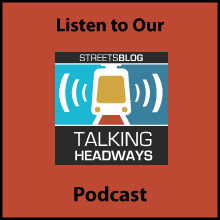San Francisco’s New Luxury Bus Service
April 19, 2015
There’s a new private service in San Francisco offering luxury bus rides to downtown from a few select neighborhoods. For $6 each way, Leap buses have free wifi, usb ports, and sell coffee and fresh juice on board during commutes. Leap is just one of a slew of new startups that are providing luxury or private transit services in the context of San Francisco’s often overcrowded and less than stellar public transit.
Muni has been struggling to keep up with its ridership for awhile, and recently announced a plan to improve its service. Under the plan, Muni’s service hours will increase by 2.5%. The bus shelters will receive slight improvements, like better maps, solar-powered lights that will glow even when it’s foggy, and bike racks. Muni will also try to meet service standards with more regularity. These upgrades are much needed and long awaited, but whether or not they will result in meaningful improvement to Muni has yet to be seen.
In the meantime, services like Leap are trying to corner a sector of the market that public transit just isn’t satisfying. Although Leap may reek of elitism, it is also shaking up transit industry and may drive the public sector to improve. Companies like Leap are much more flexible and experimental than public transit, and as a result, are the ones driving innovation in transit. One great feature of Leap, for instance, is that riders can pay using their smartphones or even check in via bluetooth so that they don’t even have to touch their phones. Riders can also check their phones to know how far away the bus is and how many seats are left.
Yet Leap Transit doesn’t seem to have taken off so far. The bus, which currently only serves the Marina District and North Pacific Heights, runs in the morning and takes passengers downtown, and then back to the neighborhoods in the evening. While the interior is fashionable and the service feels exclusive, the bar seating doesn’t seem very practical, and ridership seems low so far. It’s questionable whether the company will make it, but there’s no doubt that the public sector can learn some valuable lessons from it.







